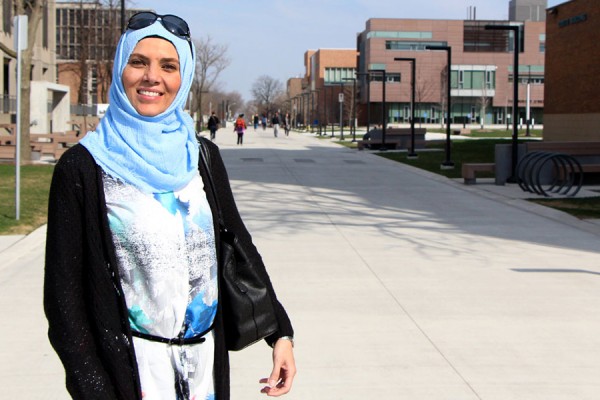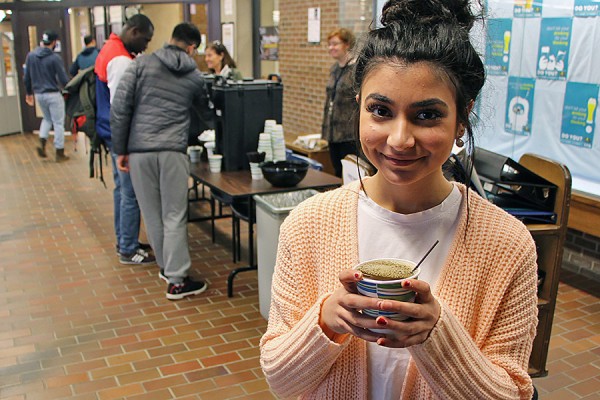 Nesreen Elkord, a PhD student in education, is looking at how Canadian schools can ease the integration of Arab immigrants.
Nesreen Elkord, a PhD student in education, is looking at how Canadian schools can ease the integration of Arab immigrants.
High school can be scary, confusing and emotional. But for a newcomer to Canada, that experience can be intensified when it’s accompanied by a language barrier and foreign culture.
Nesreen Elkord understands this better than most.
At the age of 15, she moved with her family from the United Arab Emirates to Halifax and was thrust into the Canadian education system.
“It was very challenging and difficult at times,” said Elkord, a doctoral candidate in the Faculty of Education. “It took me at least two years to be able to communicate with schoolmates and teachers within my school.”
It was this challenge that inspired her research at the University of Windsor into Arab immigrants’ perception of their high school experience.
The study focused on bridging the gaps in communicating cultural and educational values between Arab immigrants and the Canadian school community. Elkord followed seven students between the ages of 14 to 19 who arrived in Canada from seven different Arab countries.
“Imagine yourself being in a classroom where you don’t know the language being spoken around you, you are being introduced to new people, new culture, and new schooling system after you have left everything that’s familiar to you,” Elkord said. “It takes a lot of courage for these students to come out of their shells to adjust socially, and a lot of effort to become successful academically.”
And it’s an issue Elkord said is becoming more significant by the day.
According to Citizenship and Immigration Canada, immigration rates in Canada have soared from 89,377 immigrants in 1983 to 260,404 in 2014. Citizenship and Immigration Canada also reported that one in every five refugees to Canada between 2008 and 2012 arrived from an Arab country.
“Given the influx of newcomer Syrian refugees in Canada over the past year or so, understanding the backgrounds, life circumstances, values, and traditions such newcomer youth bring into Canadian culture becomes a necessity,” Elkord said, adding it can be even more challenging for refugee students.
“Refugee families are forced to escape, while immigrant families choose to emigrate, which can affect the presence of all family members at time of immigration and preparedness for the move.”
Elkord said the issue of appropriate supports in the education system is heightened for her as a mother. The 37-year-old has a 16-year-old in high school, a 13-year-old in Grade 8 and an eight-year-old in Grade 2.
“Even though all my children were born here, they still face many of the same challenges,” she said.
There are a number of programs currently in place in Ontario to assist with integrating newcomer students into the classroom, but Elkord said there is still room for improvement.
She said educators could make high school more welcoming to Arab newcomer students by providing more culturally responsive learning environments. She said supporting Arab students’ social integration, while taking into consideration their “cultural traditions and restrictions related to their religious affiliations,” can augment the focus on their academic achievement and English language acquisition.
Another challenge Elkord discovered is that many newcomer students are hesitant to voice their concerns out of appearing ungrateful.
“They often feel a sense of shyness to even talk about the challenges they are experiencing because they feel that Canada has done so much for them,” Elkord said. “The whole reason we are even looking at the Canadian education system is to look at ways to make these newcomers better Canadian citizens.”
Elkord recently joined the Windsor-Essex Local Immigration Partnership, where she hopes to take the knowledge gained from her research and apply it to the partnership’s initiatives focusing on youth and immigrant students.
“I hope that insights from this study can help improve the teaching practices and societal relations and make a difference to these students,” she said.




